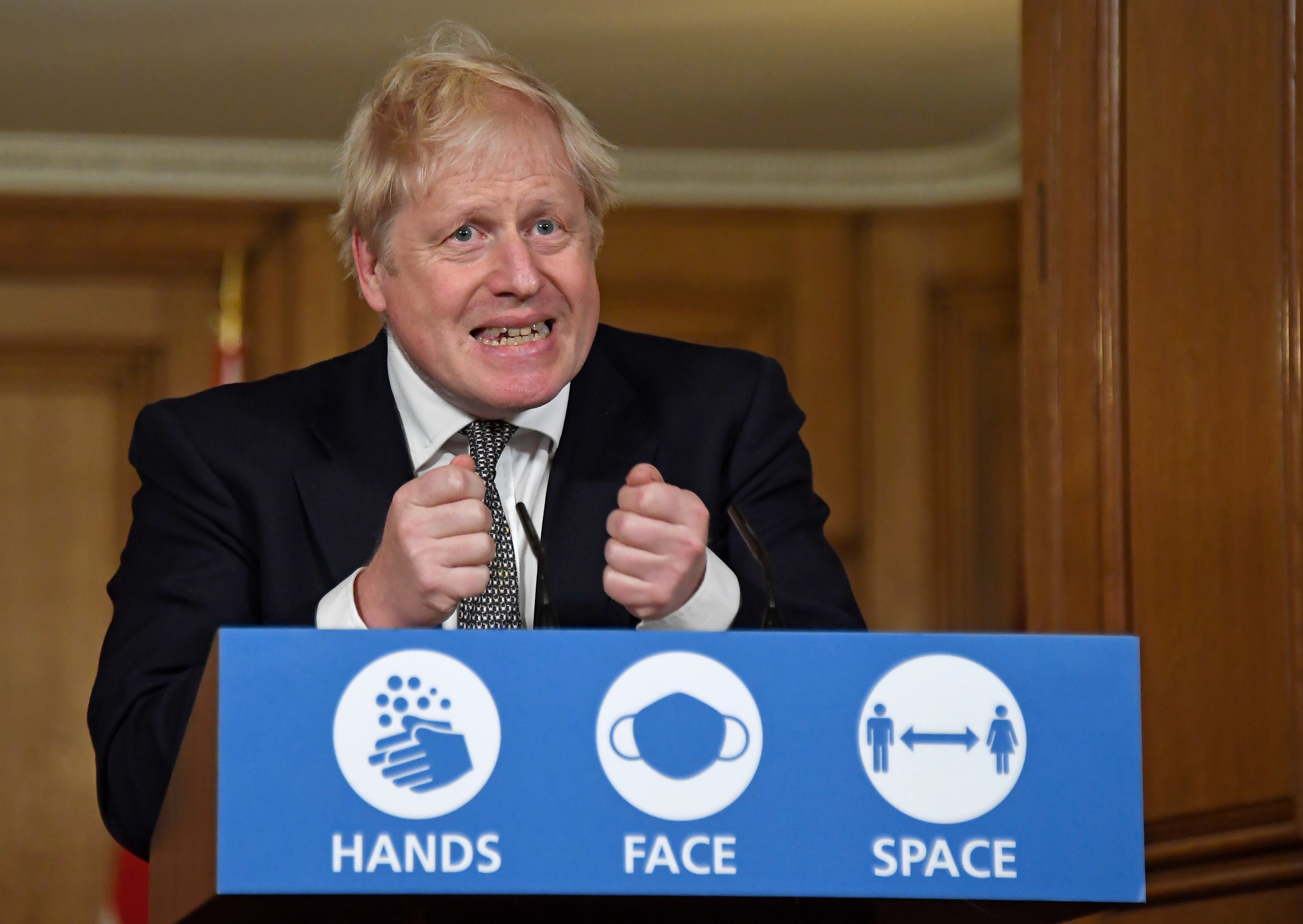We need better leadership to beat the virus – not more of Boris Johnson’s false promises
Editorial: We shall have to wait and see whether four weeks will be enough to regain some kind of control over Covid-19

It took barely 12 hours for the second lockdown to be extended. Yesterday morning, Michael Gove told broadcasters that the situation would be reviewed on 2 December, and when asked whether this meant the initial four-week lockdown might be extended, he gave a short, three-letter answer: “Yes.”
We do not wish to preempt that review, and No 10 has since insisted that the new measures will end on time, but it should be taken into account that when Boris Johnson announced the previous lockdown in March, he made it very clear it was only supposed to last for three weeks. It lasted 12.
Whether four miserable weeks will be sufficient for the health authorities to regain some kind of control over the virus, we shall have to wait and see. But in the meantime, Boris Johnson has another, almost as urgent task, and that is to regain some kind of control over his own reputation.
Things simply cannot go on like this. What is especially baffling is that, though the disasters of March were many and entirely self-inflicted, the UK is no longer an embarrassment among its peers. France is struggling with rampant rates of infection, yet Emmanuel Macron chose to reimpose severe national restrictions only a few days ago.
The Netherlands is struggling, badly. But the sense, in either country, that the people have completely lost faith with their leaders, is not the same.
Even within this country, Scotland is faring precious little better than England, yet every poll suggests its people do not feel they are being led by a government that is struggling to get from one hour to the next.
This stuff matters. Lockdowns and the stringent rules that go with them, achieve very little if people do not comply with them. And people will not comply with the rules if they seem to emerge from some kind of cartoonish cloud of chaos.
On Friday, the chancellor, Rishi Sunak, was reposting on his social media channels the fact that the “furlough scheme ends tomorrow”, and the new Job Support Scheme would begin on Sunday.
Within 24 hours, the furlough scheme was extended, its replacement, the Job Support Scheme, was shelved for at least another month. It is not as if some seismic new event occurred in that gap, some terrible new analysis.
The public can clearly see that Mr Johnson was advised, by his scientists, to trigger a short national lockdown five weeks ago. People could see, three weeks ago, that he decided against it, and launched his tiered system instead. When he launched that system, the chief medical officer, Chris Whitty, stood by the prime minister’s side and said that the measures did not go far enough.
Mr Johnson has spent much of the last month attacking the Labour Party for advocating a short national lockdown. He has done so in vitriolic and personal terms. And now, here he is, doing precisely that. Several government insiders indicate that, were it not for Labour’s intervention, the urgently needed lockdown might have occurred sooner, but Mr Johnson wasn’t prepared to make it so clear that the opposition had been right and he had been wrong.
His representatives spent 10 days arguing with Andy Burnham, the Greater Manchester mayor, over £5m of relief for the city’s most struggling people. Now, scarcely a week on, the full furlough scheme is back, nationwide. Manchester will now receive significantly more than Mr Burnham ever asked for.
People are forgiving. They can see this is an impossible and unprecedented situation. But they can also see it does not need to be as shambolic as this. Chaos erodes trust, chaos erodes compliance. Chaos, in short, spreads the virus.
It is worth noting, too, how we came to be here. In May, Mr Johnson was roundly mocked at the end of one of his many addresses to the public, the one which launched the new slogan: “Stay Alert, Control the Virus, Save Lives”.
But underpinning this message was a fine strategy. That the virus must be tracked and contained locally, and it would depend on an effective test and trace system. Six months on, he has failed to deliver on that system, saying only, on many occasions, that it will be “world-beating”. It isn’t world-beating, it’s dysfunctional. But it is far from alone.
President Macron, for example, said last month that test and trace “doesn’t work”. Hong Kong’s test and trace system doesn’t really use an app. It is mainly analogue. Most of the world is struggling with test and trace. But not many other world leaders, perhaps only Donald Trump, are struggling under the weight of so many false promises.
We now know the next phase is meant to be some kind of “Operation Moonshot”, that will involve millions of tests a week. But a weary public has heard enough of these big promises.
The prospect of a vaccine looms ever larger upon the horizon, but we hear contradictory whisperings about how effective it might be, and who might get it and by when.
Until any of that comes to pass, the most effective action is the one the people must be persuaded to take. And they will only be persuaded by better, and less dishonest, leadership.

Join our commenting forum
Join thought-provoking conversations, follow other Independent readers and see their replies
Comments